- DSC is a publicly supported institution'authorized by the Utah State Board of Regents'with two interdependent tiers. DSC offers associate degrees and certificate programs that meet the needs of students, the community and the state. The College also offers baccalaureate programs in high demand areas and in core or foundational areas consistent with four-year colleges. Dixie State College enhances its campus climate by promoting cultural and demographic diversity, and by inviting students to participate in its open-door, post-secondary educational programs.
School Highlights
Utah Tech University serves 14,658 students (54% of students are full-time).
The college's student:teacher ratio of 17:1 is higher than the state community college average of 16:1.
Minority enrollment is 24% of the student body (majority Hispanic), which is less than the state average of 29%.
Quick Stats (2025)
- Enrollment: 14,658 students
- In-state tuition: $4,456
- Out-state tuition: $12,792
- Student:teacher ratio: 17:1
- Minority enrollment: 24%
- Source: Integrated Postsecondary Education Data System (IPEDS)
School Overview
The teacher population of 877 teachers has stayed relatively flat over five years.
Utah Tech University
(UT) Community College Avg.
Carnegie Classification
Baccalaureate Colleges: Diverse Fields
Not applicable, not in Carnegie universe (not accredited or nondegree-granting)
Institution Level
Less than 2 yrs
Four or more years
Institution Control
Public
Private not-for-profit
Total Faculty
877 staff
154 staff
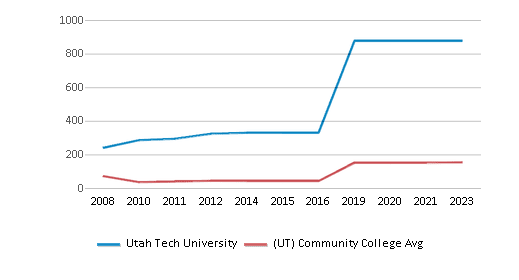
School Calendar
Student Body
The student population of Utah Tech University has grown by 30% over five years.
The student:teacher ratio of 17:1 has increased from 13:1 over five years.
The Utah Tech University diversity score of 0.40 is less than the state average of 0.47. The school's diversity has stayed relatively flat over five years.
Total Enrollment
14,658 students
2,323 students
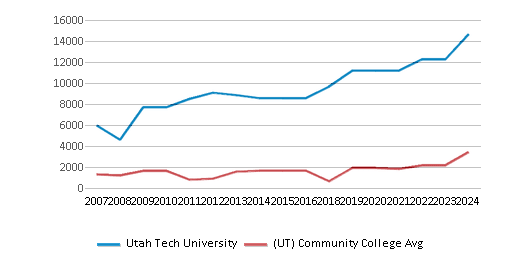
Student : Teacher Ratio
17:1
16:1
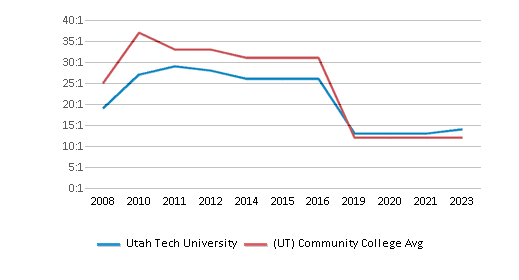
# Full-Time Students
7,962 students
621 students
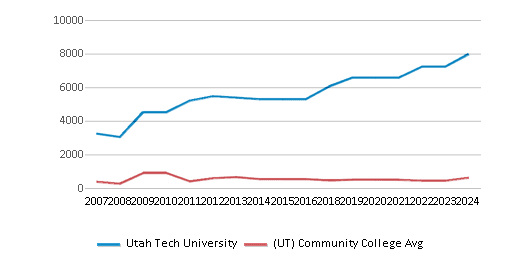
# Part-Time Students
6,696 students
3,394 students
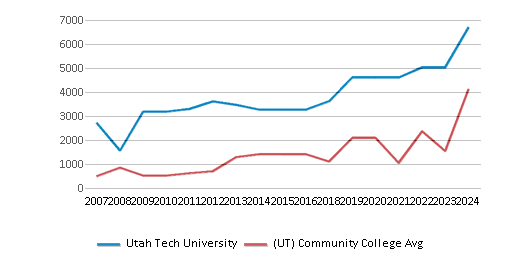
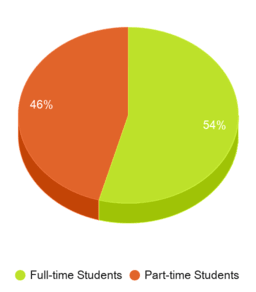
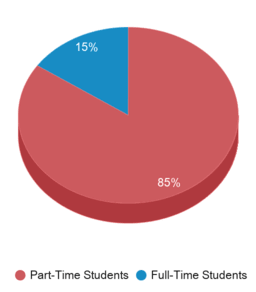
# Enrollment Undergraduate
145 students
325 students
# Full-Time Undergraduate Students
7,913 students
621 students
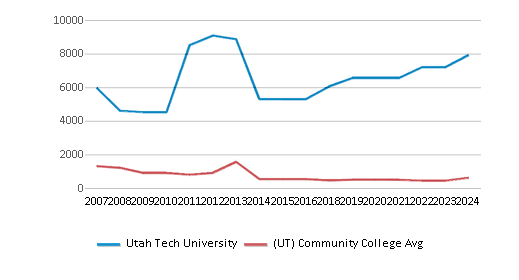
# Full-Time Graduate Students
49 students
49 students
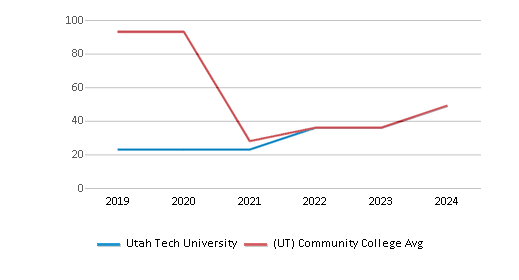
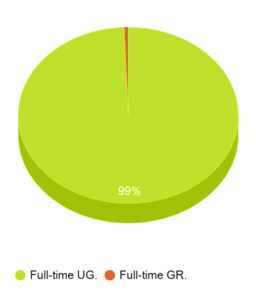
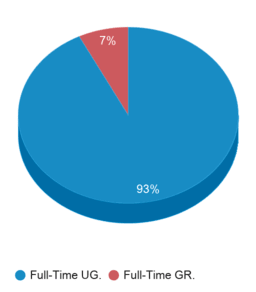
# Part-Time Undergraduate Students
n/a
3,394 students
# Part-Time Graduate Students
n/a
37 students
Total Dormitory Capacity
n/a
750 students
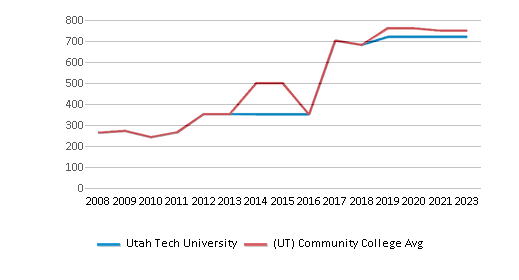
% American Indian/Alaskan
1%
1%
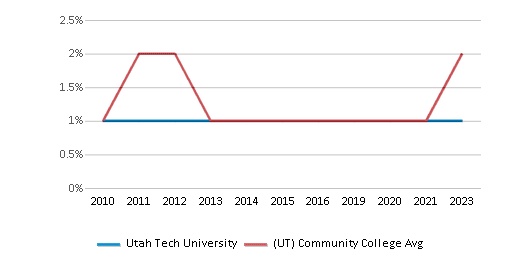
% Asian
1%
2%
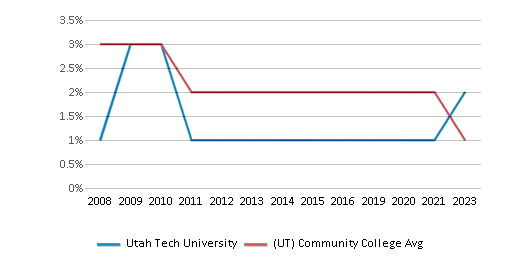
% Hispanic
13%
13%
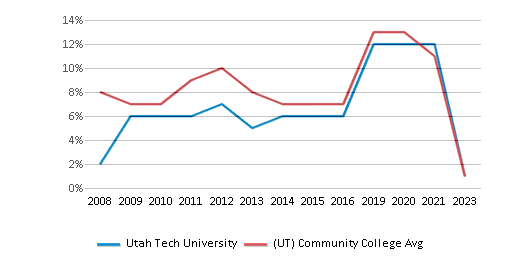
% Black
1%
1%
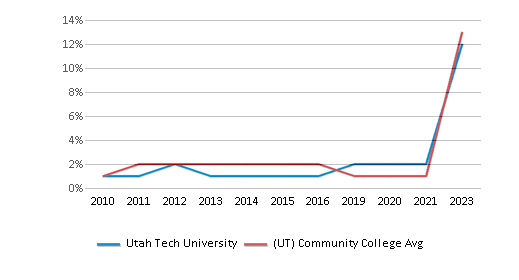
% White
76%
71%
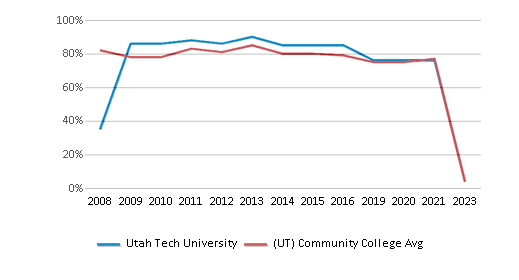
% Hawaiian
1%
1%
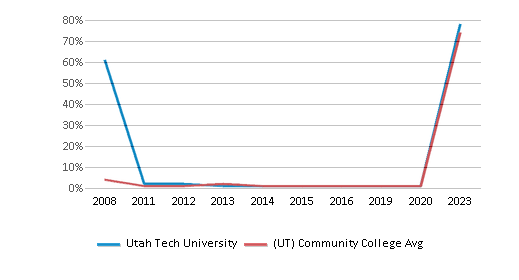
% Two or more races
4%
3%
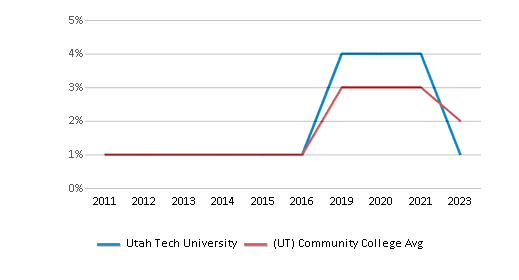
% Non Resident races
1%
4%
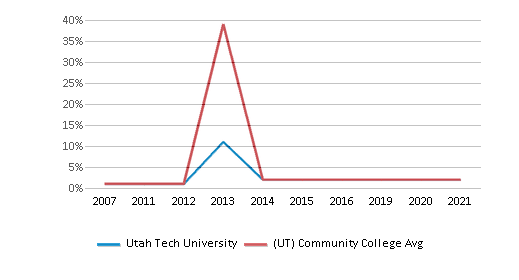
% Unknown races
1%
4%
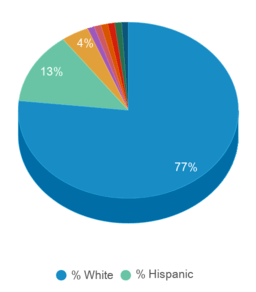
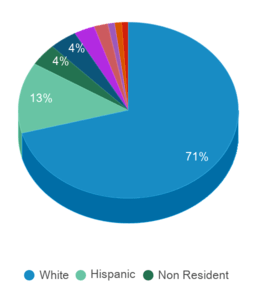
Diversity Score
0.40
0.47
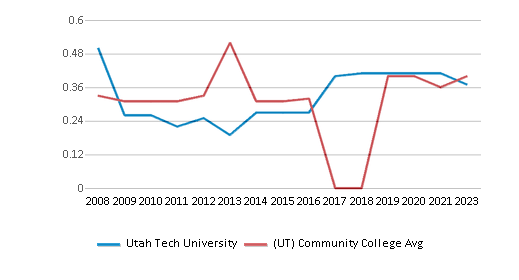
College Completion Rate (Students who graduate in less than 4 years)
n/a
0.6526%
College Completion Rate (Students who graduate in 4 years or more than 4 years)
0.3556%
0.4651%
Average Graduate Earnings (10 Years)
$39,600
$32,700
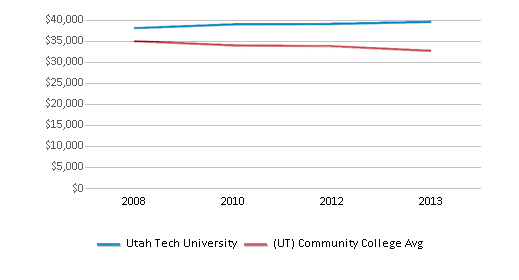
Tuition and Acceptance Rate
The public in-state tuition of $4,456 is less than the state average of $4,544. The in-state tuition has declined by 21% over four years.
The public out-state tuition of $12,792 is less than the state average of $13,647. The out-state tuition has declined by 21% over four years.
In-State Tuition Fees
$4,456
$4,544
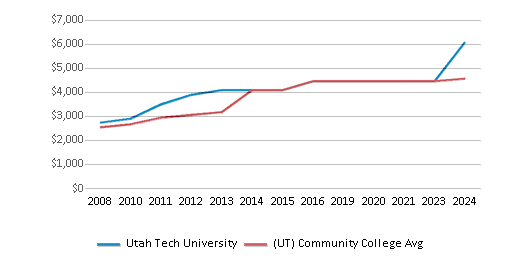
Out-State Tuition Fees
$12,792
$13,647
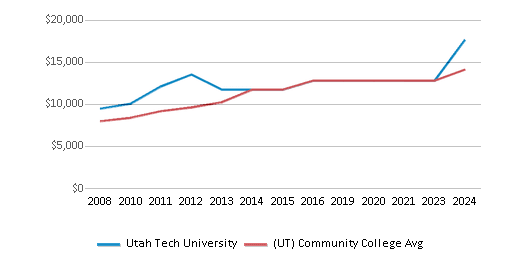
% Students Receiving Some Financial Aid
88%
73%
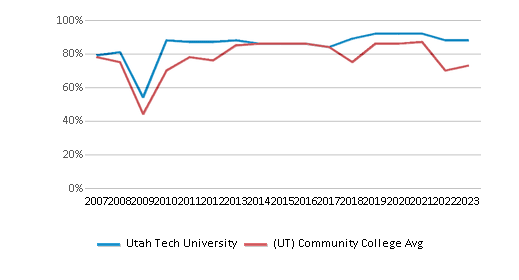
Median Debt for Graduates
$15,021
$15,972
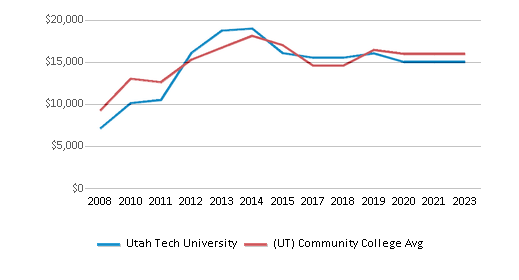
Median Debt for Dropouts
$5,500
$6,334
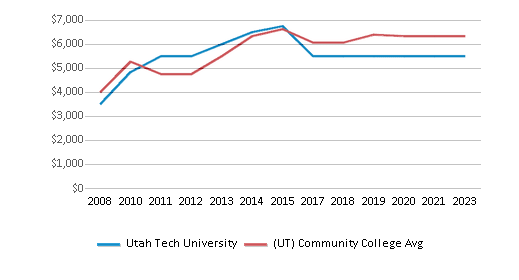
Acceptance Rate
n/a
93%
SAT Reading
n/a
545
SAT Math
n/a
550
ACT Composite
n/a
23
ACT English
n/a
24
ACT Math
n/a
23
Source: 2024 (or latest year available) Integrated Postsecondary Education Data System (IPEDS) , School Administrators
School Notes
- Dixie State College of Utah is a state supported college with a two-tiered mission under the direction of the Utah State Board of Regents. First, it is a comprehensive community college designed to meet the educational, technical and vocational needs of the community. Second, Dixie State has been authorized by the regents to offer four-year degrees that are in demand in the local area. Currently, four baccalaureate programs are provided: business administration, computer and information technology, elementary education, and nursing. The college is fully accredited by the Northwest Association of Schools and Colleges and is a member of the American Association of Community Colleges and the American Council of Education. When the Civil War threatened a shortage of cotton goods in the West, Brigham Young, the 'Mormon Colonizer,' sent 300 families to southwestern Utah to raise cotton and build a factory for manufacturing cloth. This colonization, which began in 1861, was an historic epic in hardship and struggle. The combination of semi-tropical climate and cotton raising caused early settlers to refer to the area as Utah's Dixie ' hence the name Dixie State College. When it began operation in 1911, the school was officially called the St. George Stake Academy, but it was soon nicknamed 'Dixie Academy.' In 1923 it became Dixie Junior College, and in 1970, Dixie College. In July of 2000, the school officially became known as Dixie State College of Utah as it added four-year degree programs to its academic offerings. Thus, in one form or another, the name has endured. The college offers Associate of Arts (AA), Associate of Science (AS), Associate of Science in Business (ASB), Associate of Pre-Engineering (APE) and Associate of Science in Criminal Justice degrees. Bachelor Degrees are offered in Business Administration, Computer & Information Technology, Elementary Education, Nursing (BSN) and Communication & New Media.
Frequently Asked Questions
How much does Utah Tech University cost?
Utah Tech University's tuition is approximately $4,456 for In-State students and $12,792 for Out-State students.
What schools are Utah Tech University often compared to?
Utah Tech Universityis often viewed alongside schools like Snow College by visitors of our site.
Recent Articles

Obtaining Your Bachelor's Degree at a Community College
Explore the evolving landscape of community colleges offering bachelor's degrees, addressing affordability, accessibility, and workforce needs.

A to Z of Community College Certificates and Courses
From business and healthcare to technology and skilled trades, the article showcases the breadth of options available to students seeking to enhance their knowledge, develop new skills, or pursue career advancement.

What is a Community College?
This comprehensive guide explains what a community college is, its history, and its role in higher education. It covers the types of programs offered, differences from four-year colleges, benefits of attending, and important considerations for prospective students, providing valuable insights for those exploring educational options.









